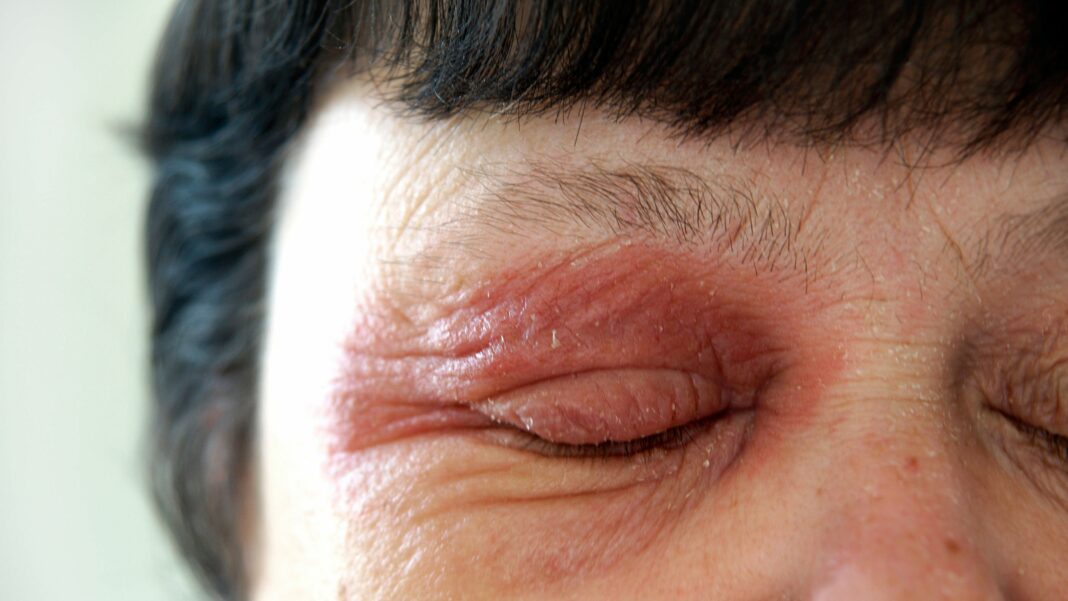Atopic Dermatitis Eye Complications: How to Protect Your Vision
Atopic dermatitis, also known as eczema, is a common skin condition that affects millions of people worldwide. While it primarily affects the skin, atopic dermatitis can also have a significant impact on the eyes. In this article, we will explore the various eye complications associated with atopic dermatitis and provide tips on how to protect your vision.
What are the Eye Complications of Atopic Dermatitis?
Atopic dermatitis can affect the eyes in several ways, including:
1. Eyelid Dermatitis
Atopic dermatitis can cause inflammation of the eyelids, leading to redness, itching, and swelling. This condition, known as eyelid dermatitis, can be uncomfortable and may affect your ability to see clearly.
2. Conjunctivitis
Conjunctivitis, also known as pink eye, is a common eye infection that can be triggered or exacerbated by atopic dermatitis. Symptoms of conjunctivitis include redness, itching, and a discharge from the eyes.
3. Keratoconus
Keratoconus is a progressive eye condition in which the cornea thins and bulges outwards, causing distorted vision. Individuals with atopic dermatitis may be at a higher risk of developing keratoconus, which can have a significant impact on their vision.
How to Protect Your Vision
While atopic dermatitis can pose challenges for your eye health, there are steps you can take to protect your vision. Here are some tips to help maintain healthy eyes while managing atopic dermatitis:
1. Keep Your Skin Moisturized
Properly moisturizing your skin can help prevent flare-ups of atopic dermatitis, which may in turn reduce the risk of eye complications. Use a gentle, fragrance-free moisturizer regularly to keep your skin hydrated.
2. Avoid Rubbing Your Eyes
Rubbing your eyes can exacerbate symptoms of atopic dermatitis and increase the risk of eye infections. If you feel the urge to rub your eyes, try using a cold compress or applying gentle pressure instead.
3. Practice Good Hygiene
Practicing good hygiene can help prevent eye infections and other complications associated with atopic dermatitis. Wash your hands frequently, avoid sharing personal items like towels and makeup, and clean your eyelids regularly to reduce inflammation.
4. Visit an Eye Doctor Regularly
Regular eye exams are essential for monitoring your eye health and catching any issues early. If you have atopic dermatitis, be sure to inform your eye doctor so they can provide personalized care and recommendations.
Conclusion
Atopic dermatitis can have a significant impact on your eyes, leading to various complications such as eyelid dermatitis, conjunctivitis, and keratoconus. By taking proactive steps to protect your vision, such as keeping your skin moisturized, avoiding rubbing your eyes, practicing good hygiene, and visiting an eye doctor regularly, you can help maintain healthy eyes while managing your atopic dermatitis.
FAQs
1. Can atopic dermatitis cause permanent damage to the eyes?
While atopic dermatitis can lead to eye complications, with proper care and management, the risk of permanent damage can be minimized. It is important to seek guidance from a healthcare professional to address any concerns about your eye health.
2. Are there specific eye drops that can help with atopic dermatitis-related eye symptoms?
There are eye drops available that can help relieve symptoms such as itching and redness associated with atopic dermatitis. Consult with your eye doctor to determine which eye drops may be suitable for your specific situation.
3. Is wearing contact lenses safe for individuals with atopic dermatitis?
Individuals with atopic dermatitis may be at a higher risk of eye infections, so it is important to exercise caution when wearing contact lenses. Be sure to follow proper hygiene practices and consult with your eye doctor if you have any concerns.




